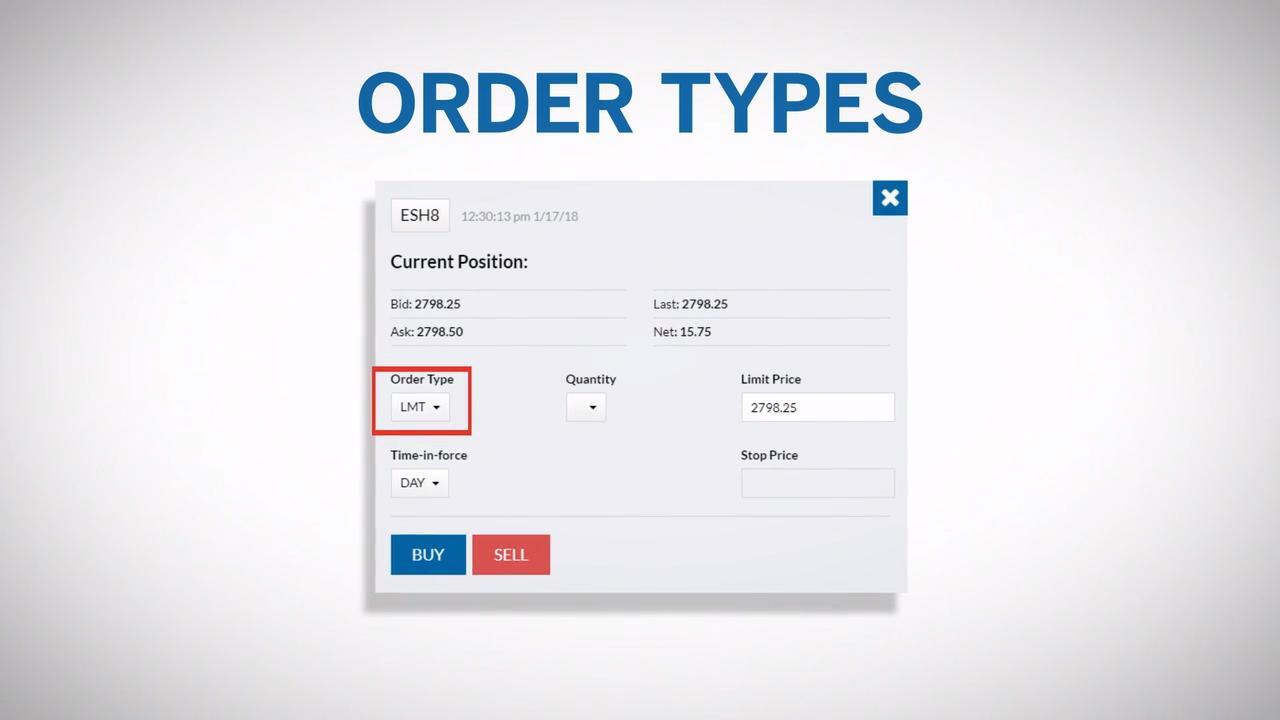

Finance
What Is A Securities Litigator
Modified: February 21, 2024
Looking for a finance professional specializing in securities litigation? Discover the role and importance of securities litigators in the finance industry.
(Many of the links in this article redirect to a specific reviewed product. Your purchase of these products through affiliate links helps to generate commission for LiveWell, at no extra cost. Learn more)
Table of Contents
Introduction
Securities litigation is a specialized field in the legal industry that focuses on protecting investors and maintaining the integrity of financial markets. It involves legal actions related to securities fraud, insider trading, market manipulation, and other violations of securities laws. Securities litigators are attorneys who specialize in representing clients in such cases, either as plaintiffs seeking compensation for investment losses or as defense counsel for individuals or companies facing allegations of misconduct.
Financial markets play a critical role in our economy, providing a platform for companies to raise capital and for investors to participate in wealth creation. However, with the complexities and uncertainties inherent in the financial sector, misconduct and fraudulent practices can arise, harming investors and eroding trust in the system. Securities litigators play a pivotal role in addressing these issues by advocating for fair and transparent markets and holding wrongdoers accountable.
In this article, we will explore the world of securities litigation, delving into the roles and responsibilities of securities litigators, the necessary skills and qualifications, educational and training pathways, key cases and examples, ethical considerations, as well as current trends and challenges faced by professionals in this field.
Whether you are an aspiring securities litigator looking for insights into this exciting legal niche or an individual or company seeking guidance in a security-related legal matter, this article will provide you with a comprehensive understanding of the important work these specialized attorneys undertake.
Definition of a Securities Litigator
A securities litigator is an attorney who specializes in handling legal disputes and litigation related to securities and financial markets. This branch of law focuses on violations of securities laws, including fraudulent practices, insider trading, market manipulation, and other misconduct that can harm investors and compromise the integrity of financial markets.
Securities litigators represent clients who have suffered financial losses due to securities fraud or misconduct. They may also defend individuals or companies accused of securities violations. A securities litigator’s primary goal is to seek justice for their clients by advocating for their rights and ensuring that the applicable securities laws are upheld.
Securities litigation can encompass a range of legal actions, including class action lawsuits, individual investor claims, regulatory investigations, and enforcement proceedings. Securities litigators may work in law firms specializing in this field or as part of larger firms that have dedicated securities litigation departments. They will often collaborate with other professionals such as investigators, forensic accountants, and financial experts to build a strong case for their clients.
One of the key aspects of a securities litigator’s role is to navigate the complexities of securities laws and regulations. They must have a deep understanding of both federal and state securities laws, as well as the regulations imposed by entities such as the Securities and Exchange Commission (SEC). This expertise allows securities litigators to provide their clients with sound legal advice, assess the merits of their case, and develop an effective litigation strategy.
Furthermore, securities litigators must stay updated on the evolving landscape of securities laws and regulatory frameworks. This is crucial in order to address new challenges and adapt to changes in the financial industry. Rapid advancements in technology, such as the rise of cryptocurrencies and blockchain, have also introduced new legal complexities that securities litigators must navigate.
Overall, a securities litigator is a highly specialized attorney who possesses in-depth knowledge of securities laws and regulations. They play an essential role in protecting investors and maintaining the integrity of financial markets by advocating for fair and transparent practices, holding wrongdoers accountable, and seeking compensation for those who have suffered financial losses due to securities fraud or misconduct.
Role and Responsibilities
A securities litigator assumes a multifaceted role in representing clients involved in securities-related legal disputes. Their responsibilities can vary depending on whether they are working on behalf of plaintiffs or defendants. Let’s take a closer look at the key roles and responsibilities of a securities litigator:
1. Client Representation: Securities litigators represent their clients in all aspects of the legal process. For plaintiffs, this includes conducting investigations, gathering evidence, and building a strong case to seek compensation for investment losses. For defendants, securities litigators provide legal defense by analyzing the allegations, preparing a defense strategy, and representing the client in court or during settlement negotiations.
2. Legal Research and Analysis: Securities litigators must possess a thorough understanding of securities laws, regulations, and precedents. They conduct extensive legal research to stay up-to-date with relevant statutes and case law, allowing them to analyze the applicability of laws to their clients’ cases and provide sound legal advice.
3. Case Assessment and Strategy: Securities litigators evaluate the strength of their clients’ cases by examining the evidence, assessing potential damages, and identifying legal arguments. They develop a litigation strategy, determining the most effective approach to achieve a favorable outcome for their clients, be it through negotiation, settlement, or trial.
4. Document Preparation and Filing: Securities litigation involves extensive documentation, including complaints, motions, briefs, and other legal filings. Securities litigators draft and file these documents, ensuring compliance with court requirements and deadlines.
5. Discovery and Investigation: Securities litigators engage in the discovery process, which involves exchanging relevant information and evidence with opposing parties. They utilize various tools and techniques to investigate the facts and circumstances of the case, including obtaining witness statements, reviewing financial records, and conducting forensic analysis.
6. Expert Witness and Testimony: In complex securities cases, securities litigators may work closely with expert witnesses such as financial analysts, accountants, or economists. They collaborate with these experts to analyze complex financial transactions or interpret market trends, and may call upon them to provide expert testimony to support their clients’ positions.
7. Negotiation and Settlement: Securities litigators aim to resolve disputes in the best interests of their clients. They engage in negotiation and settlement discussions with opposing counsel or regulatory authorities to reach mutually acceptable resolutions that fulfill their clients’ objectives.
8. Trial Advocacy: While many securities-related cases are settled before trial, some may proceed to court. Securities litigators effectively present their clients’ cases before judges or juries, presenting evidence, examining witnesses, and strategically arguing legal and factual issues.
These responsibilities highlight how securities litigators play a critical role in guiding and advocating for their clients throughout the entire legal process. Their expertise and dedication enable them to navigate the complexities of securities laws and regulations to seek justice and protect the interests of their clients.
Skills and Qualifications
Securities litigation is a complex field that requires attorneys to possess a specific set of skills and qualifications. Successful securities litigators should demonstrate a combination of legal expertise, analytical prowess, and communication skills. Let’s explore the key skills and qualifications necessary for a career in securities litigation:
1. Knowledge of Securities Laws: Securities litigators need a deep understanding of federal and state securities laws, as well as the regulations imposed by the SEC and other regulatory bodies. This includes knowledge of acts such as the Securities Act of 1933, the Securities Exchange Act of 1934, and the Investment Advisers Act of 1940.
2. Legal Research and Analysis: Strong research and analytical skills are paramount for securities litigators. They must have the ability to conduct comprehensive legal research, analyze statutes and case law, and apply legal principles to their clients’ cases.
3. Financial Acumen: Securities litigators should possess a solid understanding of financial markets, investment products, and accounting principles. This knowledge allows them to interpret complex financial transactions, assess damages, and analyze the impact of securities fraud or misconduct on their clients’ investments.
4. Attention to Detail: Securities litigation involves intricate details of financial transactions and legal documentation. Attorneys in this field must demonstrate exceptional attention to detail to spot discrepancies, identify patterns, and build compelling arguments based on solid evidence.
5. Strong Advocacy and Negotiation Skills: As advocates for their clients, securities litigators must possess strong persuasive and negotiation skills. They must effectively present their clients’ case, both written and orally, and negotiate favorable settlements that align with their clients’ goals.
6. Critical Thinking and Problem-Solving: Securities litigators frequently encounter complex legal and factual issues. They must exhibit strong critical thinking skills to identify legal strategies, anticipate potential challenges, and develop innovative solutions to navigate these complexities.
7. Time Management and Organization: Securities litigation often involves multiple cases, tight deadlines, and extensive documentation. Attorneys must possess excellent time management and organizational skills to stay on top of various tasks, meet deadlines, and effectively manage their workload.
8. Communication and Presentation: Effective communication is vital in securities litigation. Securities litigators must be able to clearly articulate complex legal concepts and arguments to judges, juries, clients, and opposing counsel. Strong writing and public speaking skills are essential for preparing legal documents, presenting oral arguments, and delivering persuasive presentations.
9. Professionalism and Ethical Conduct: Securities litigators must adhere to high ethical standards and professional conduct. They should prioritize their clients’ best interests while maintaining integrity, honesty, and confidentiality in all aspects of their work.
10. Continuing Education and Professional Development: Given the dynamic nature of securities laws and regulations, securities litigators should commit to ongoing professional development. Staying informed about new legal developments and attending relevant seminars or conferences helps them stay current in their field.
While a law degree and admission to the Bar are the foundational qualifications for securities litigators, acquiring and honing these skills is crucial for success in this specialized field. By mastering these skills and staying up to date with changes in securities laws and regulations, attorneys can effectively advocate for their clients and navigate the complex landscape of securities litigation.
Education and Training
Education and training are essential components of a successful career in securities litigation. While the specific path may vary, there are certain educational and training requirements that aspiring securities litigators typically need to fulfill. Let’s explore the key aspects of education and training for this field:
1. Undergraduate Degree: To pursue a career in securities litigation, aspiring attorneys usually start by obtaining a bachelor’s degree. While there is no specific undergraduate major required, a degree in law, finance, economics, or business can provide a solid foundation for understanding the complexities of the financial industry and legal principles.
2. Law School: The next step is to attend law school and earn a Juris Doctor (J.D.) degree. Admission to law school typically requires a bachelor’s degree, satisfactory scores on the Law School Admission Test (LSAT), letters of recommendation, and a personal statement highlighting motivation and aptitude for a legal career.
3. Securities Law Courses: During law school, aspiring securities litigators should take advantage of courses or electives that focus on securities law, corporate law, and financial regulation. These courses provide a comprehensive understanding of the legal frameworks and complexities surrounding securities litigation.
4. Internships and Externships: Gaining practical experience through internships or externships at law firms specializing in securities litigation or regulatory agencies such as the SEC can be highly beneficial. These opportunities provide exposure to real-world cases and the chance to work alongside experienced securities litigators.
5. Networking: Building a professional network within the legal and financial sectors is crucial for aspiring securities litigators. Attending law school events, joining relevant professional organizations, and connecting with practicing attorneys can open doors to internships, job opportunities, and mentorship.
6. Bar Exam: After completing law school, graduates must pass the bar exam in the jurisdiction where they intend to practice. The specific requirements and format of the exam vary by state, but it typically consists of a written portion and a multiple-choice section.
7. Legal Practice: Following successful completion of the bar exam, many attorneys choose to gain experience by working at law firms that specialize in securities litigation. This allows them to learn from experienced attorneys, handle cases, and develop a deeper understanding of the nuances of securities laws and regulations.
8. Continuing Legal Education: Given the ever-evolving nature of securities laws and regulations, securities litigators are expected to engage in continuing legal education (CLE). Attending seminars, workshops, and webinars related to securities litigation helps attorneys stay updated on new legal developments, enhance their skills, and maintain their professional licenses.
While the education and training path outlined here provides a solid foundation for a career in securities litigation, it is important to note that each individual’s journey may differ. Some attorneys may choose to pursue advanced degrees or certifications in finance or securities law to further specialize in this field.
It is worth mentioning that securities litigation is a highly competitive field, and the demand for experienced and knowledgeable professionals continues to grow. Therefore, aspiring securities litigators should remain proactive in seeking educational opportunities, staying informed about industry trends, and honing their skills to stand out in this dynamic and rewarding legal specialty.
Key Cases and Examples
Securities litigation encompasses a wide range of cases involving securities fraud, insider trading, market manipulation, and other violations of securities laws. Let’s explore some key cases and examples that have had a significant impact on the field of securities litigation:
1. Enron Corporation: The Enron scandal, which unfolded in the early 2000s, remains one of the most prominent examples of securities fraud. Enron, an energy company, employed deceptive accounting practices to hide its debt and inflate its profits. This case led to the collapse of Enron and resulted in criminal convictions for several top executives, as well as civil securities litigation seeking compensation for defrauded investors.
2. Bernard Madoff Ponzi Scheme: Bernard Madoff, a former chairman of NASDAQ, orchestrated one of the largest and most infamous Ponzi schemes in history. Madoff’s investment firm promised high returns to investors, but it was revealed that he was using new investors’ money to pay off existing investors. When the scheme collapsed, it led to substantial financial losses for countless individuals and organizations. Securities litigators played a crucial role in recovering funds and pursuing legal actions against those involved in the scheme.
3. Volkswagen Emissions Scandal: The Volkswagen emissions scandal, also known as “Dieselgate,” involved the manipulation of emissions tests by Volkswagen Group. The company installed software in certain diesel vehicles that altered engine performance during emissions testing, resulting in lower emissions readings. This case highlighted the significance of securities litigation in holding companies accountable for fraudulent practices and protecting investor interests.
4. Securities Class Action Lawsuits: Securities class action lawsuits are common in securities litigation and often involve allegations of false or misleading statements by publicly traded companies. These lawsuits aim to recover damages on behalf of a group of investors who have suffered losses due to such deceptive practices. Notable examples include class action lawsuits against companies like Wells Fargo, Tesla, and Facebook.
5. Insider Trading Cases: Securities litigators play a crucial role in prosecuting insider trading cases, which involve trading securities based on material non-public information. Examples of high-profile insider trading cases include the prosecutions of Raj Rajaratnam, founder of the Galleon Group hedge fund, and Martha Stewart, the prominent businesswoman and television personality.
These are just a few examples of the many significant cases that have shaped securities litigation over the years. Each case underscores the importance of securities litigators in uncovering financial misconduct, protecting investor interests, and maintaining the integrity of financial markets.
It is worth noting that securities litigation is a constantly evolving field, with new cases emerging regularly. Keeping abreast of emerging trends and landmark cases is essential for securities litigators to stay ahead and effectively represent their clients in this complex and dynamic area of law.
Ethical Considerations
Ethics play a vital role in securities litigation, as attorneys in this field are entrusted with upholding the principles of justice, fairness, and integrity. Securities litigators face unique ethical considerations due to the complex nature of financial markets and the potential impact of their work on investors, companies, and the overall market. Let’s explore some of the key ethical considerations in securities litigation:
Conflicts of Interest: Securities litigators must diligently identify and address any conflicts of interest that may arise in their representation of clients. This includes ensuring that they do not have any personal or financial interests that could compromise their objectivity and undivided loyalty to their clients. Attorneys must also be mindful of potential conflicts when representing multiple clients in the same case or when their own financial interests conflict with those of their clients.
Confidentiality: Securities litigators have a duty to maintain client confidentiality. They must protect the information shared by their clients and refrain from disclosing any privileged or confidential information, except as authorized or required by law. This duty extends to not sharing client information with other parties, including potential adversaries, without the client’s consent.
Professional Competence: Securities litigators have a professional responsibility to provide competent and diligent representation to their clients. This includes staying updated on changes in securities laws, regulations, and legal precedents, as well as continually honing their legal and advocacy skills. Attorneys should only take on cases within their expertise and, if necessary, seek assistance from experts in specialized areas to ensure proper representation.
Honesty and Truthfulness: Securities litigators must be honest and truthful in their communications with clients, opposing counsel, courts, and regulatory authorities. This includes accurately presenting facts, disclosing all relevant information, and refraining from making false or misleading statements that may influence the outcome of a case or mislead other parties.
Professionalism and Courtesy: Securities litigators are expected to conduct themselves with professionalism, courtesy, and respect for all parties involved in the litigation process. This includes treating clients, opposing counsel, witnesses, and the court with dignity, refraining from engaging in unethical or unprofessional conduct, and adhering to the rules of professional conduct set forth by legal governing bodies.
Avoidance of Frivolous Claims: Securities litigators should assess the merits of a case carefully before pursuing legal action. They have an ethical obligation to avoid bringing frivolous claims or engaging in tactics aimed solely at burdening opponents or gaining unfair advantage. Attorneys must ensure that there is a reasonable basis for their clients’ claims and that their actions contribute to the administration of justice.
Adhering to these ethical considerations not only upholds the integrity of securities litigation but also fosters trust between attorneys and their clients, promotes justice, and maintains the public’s confidence in the legal system. Securities litigators should be mindful of these ethical obligations and continually strive to uphold the highest standards of professionalism, integrity, and ethical conduct throughout their practice.
Current Trends and Challenges
Securities litigation is a constantly evolving field that is influenced by various trends and facing ongoing challenges. Staying updated with these developments is crucial for securities litigators to effectively navigate the landscape and provide the best possible representation to their clients. Let’s explore some of the current trends and challenges in securities litigation:
1. Cybersecurity and Data Breaches: With the increasing reliance on technology in financial markets, cybersecurity breaches have become a significant concern. Securities litigators are now grappling with the legal implications of data breaches and the potential for securities fraud arising from unauthorized access to sensitive financial information. Addressing these issues requires a deep understanding of both securities laws and emerging technologies.
2. Cryptocurrencies and Blockchain Technology: As cryptocurrencies and blockchain technology continue to gain prominence, they present new challenges and complexities in securities litigation. Attorneys need to understand the regulatory framework surrounding these digital assets, their potential for fraud and market manipulation, and the intricacies of blockchain technology when handling cases involving cryptocurrencies.
3. Regulatory Scrutiny: Regulatory agencies such as the Securities and Exchange Commission (SEC) are increasingly vigilant in uncovering securities violations and holding wrongdoers accountable. Securities litigators must stay updated on new regulations and enforcement priorities to effectively represent their clients and navigate investigations or enforcement actions.
4. International Reach: Securities litigation is no longer confined to national borders. Cross-border transactions and global financial markets have made it necessary for securities litigators to understand the complexities of international laws and regulations. Handling cases that involve multiple jurisdictions requires coordination with lawyers from different jurisdictions and an understanding of varying legal systems.
5. Class Actions and Collective Redress: There is a growing trend towards collective redress in securities litigation, with an increase in class action lawsuits. This allows a group of investors to join together in pursuing legal action against a company or individual. Securities litigators need to be well-versed in the intricacies of class action procedures, including certification requirements, notice requirements, and settlement negotiations.
6. Alternative Dispute Resolution: Alternative dispute resolution methods, such as arbitration and mediation, are gaining popularity in securities litigation. With the potential benefits of cost savings and faster resolution, securities litigators need to be knowledgeable about the advantages and disadvantages of these methods and effectively represent their clients’ interests in these alternative forums.
7. Evidentiary Challenges: Securities litigation often involves complex financial transactions and large volumes of data. Extracting and presenting relevant evidence can pose challenges, especially when dealing with electronic records, digital communication, and offshore transactions. Securities litigators need to leverage technology and work with experts to effectively manage and present evidence in a compelling manner.
8. Impact of Regulatory and Legislative Changes: Changes in securities laws, regulations, and court decisions can significantly impact securities litigation. Securities litigators must diligently monitor and understand these changes to adapt their strategies and ensure they are up to date in building their cases and advising clients.
Keeping abreast of these current trends and challenges allows securities litigators to effectively represent their clients in this dynamic and evolving field. By staying informed, utilizing technology, and continuously honing their legal and strategic skills, securities litigators can navigate the complexities and achieve successful outcomes for their clients in the ever-changing landscape of securities litigation.
Conclusion
Securities litigation is a specialized and dynamic field within the legal industry that plays a crucial role in safeguarding investor interests and maintaining the integrity of financial markets. Securities litigators are entrusted with the responsibility of advocating for their clients in legal disputes related to securities fraud, insider trading, market manipulation, and other violations of securities laws.
In this article, we have explored the various aspects of securities litigation, including the definition and role of a securities litigator, their key responsibilities, required skills and qualifications, educational and training pathways, notable cases, ethical considerations, and current trends and challenges in the field.
We discussed how securities litigators possess a unique combination of legal expertise, analytical skills, and financial acumen. Their role involves conducting extensive research, building strong cases, representing clients in court, and navigating the complexities of securities laws and regulations. Ethics and professionalism are critical, as securities litigators must operate with integrity, maintain client confidentiality, and adhere to high standards of professional conduct.
Furthermore, we explored current trends and challenges that securities litigators face, such as cybersecurity concerns, the rise of cryptocurrencies and blockchain technology, regulatory scrutiny, international reach, collective redress, alternative dispute resolution, evidentiary challenges, and the impact of regulatory and legislative changes.
In conclusion, securities litigation is a demanding but rewarding field that requires a deep understanding of securities laws, financial markets, and legal strategies. Securities litigators play a crucial role in seeking justice, protecting investor interests, and maintaining the integrity of financial markets. By staying informed, continuously developing their skills, and upholding ethics and professionalism, securities litigators can make a significant impact in this ever-evolving legal specialty.














